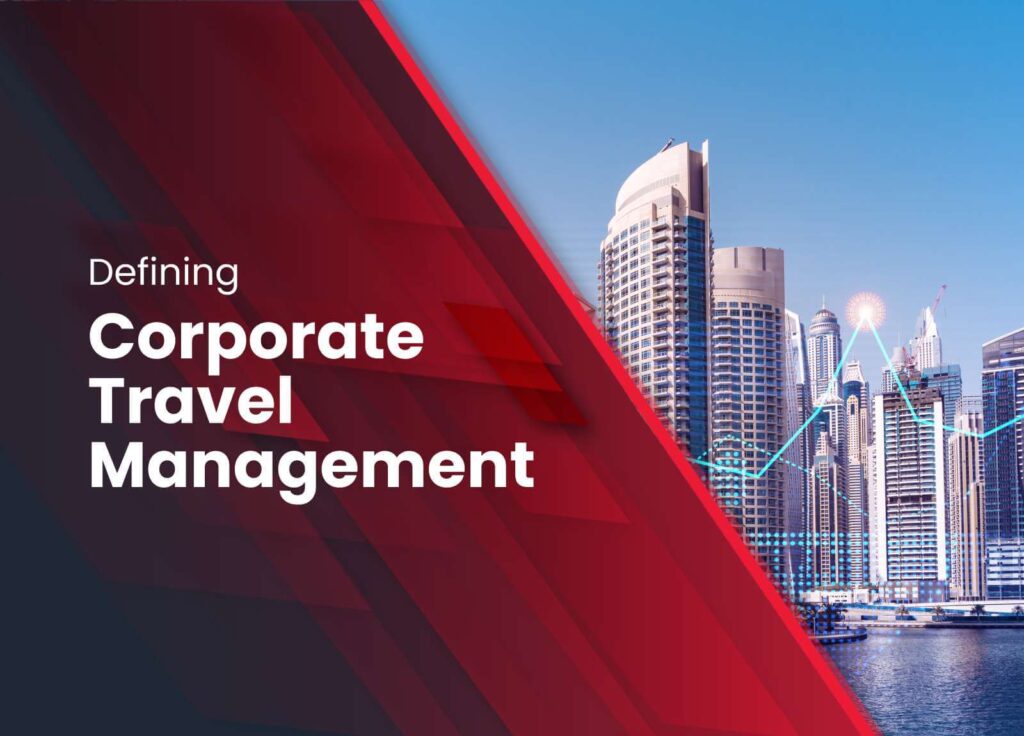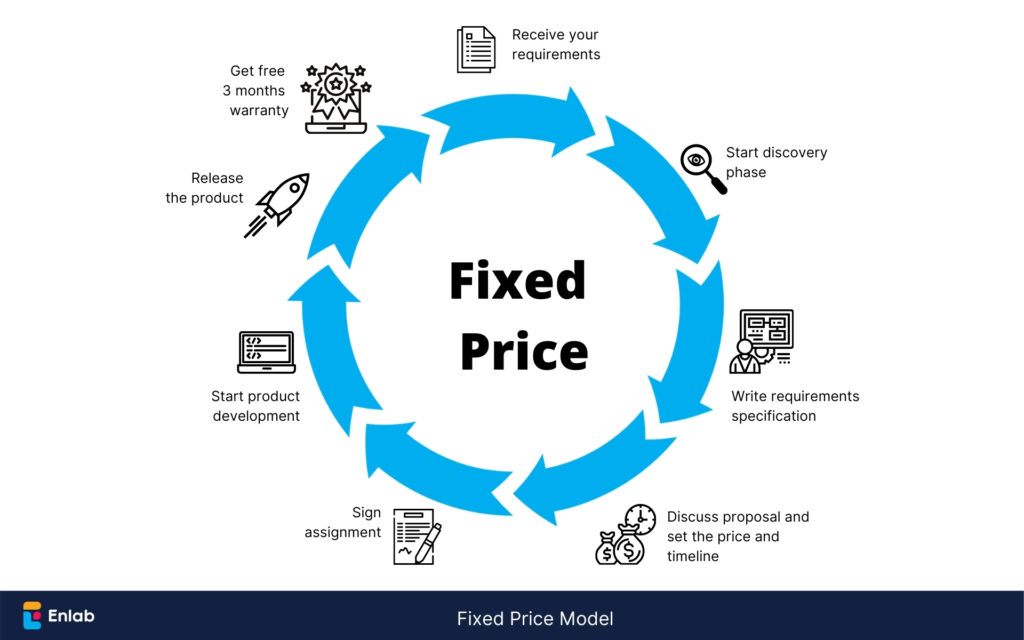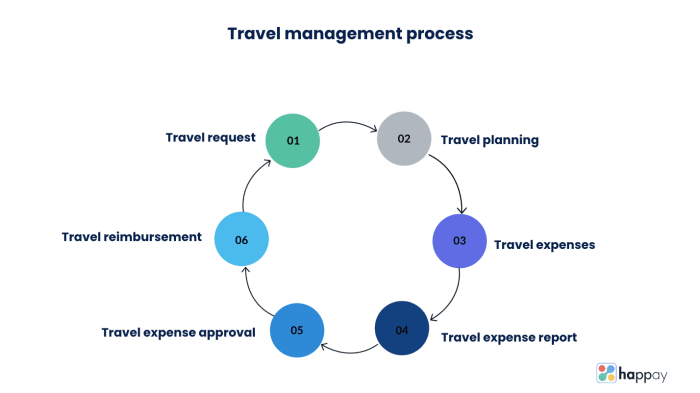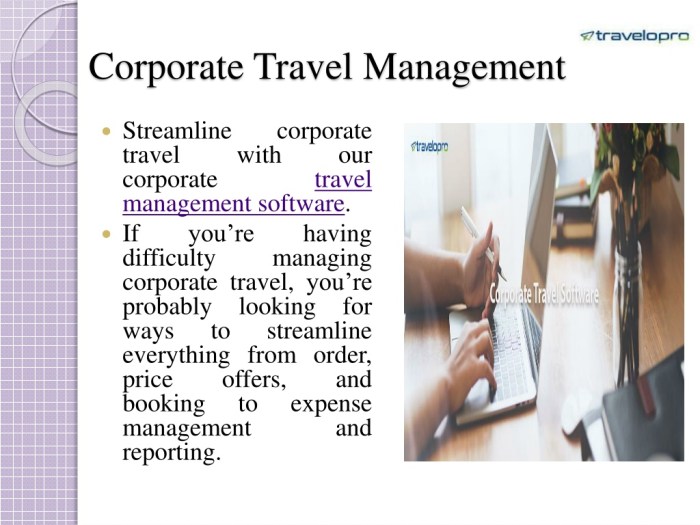Best Corporate Travel Management Companies A Comprehensive Guide
The best corporate travel management companies play a crucial role in streamlining business travel, impacting profitability and efficiency. This guide explores the landscape of corporate travel management, highlighting key considerations for businesses seeking optimal solutions.
From booking flights and hotels to expense reporting and risk management, effective corporate travel management systems are vital. This analysis delves into the top providers, evaluating their services, pricing models, and crucial factors for successful implementation. Understanding these aspects will empower companies to make informed decisions, maximizing the value of their travel programs.
Overview of Corporate Travel Management

Corporate travel management is a critical function for businesses of all sizes. Effective management of employee travel ensures smooth operations, optimized costs, and enhanced employee satisfaction. It encompasses a wide range of activities, from booking flights and accommodations to managing expenses and mitigating risks. Properly executed, corporate travel management can significantly contribute to a company’s financial health and operational efficiency.
Corporate travel management is more than just booking trips. It involves a complex interplay of strategic planning, operational efficiency, and risk mitigation. This includes meticulous planning for both individual and group travel, careful consideration of budgets, and the establishment of clear policies to ensure compliance and safety. By streamlining these processes, companies can not only save money but also enhance the travel experience for their employees.
Booking and Scheduling
Booking and scheduling travel arrangements are fundamental aspects of corporate travel management. Companies must ensure that their travel policies are in line with their business needs and that the chosen travel management company can effectively handle various travel arrangements. From coordinating flights and accommodations to managing ground transportation, effective booking processes ensure seamless travel experiences for employees.
Expense Reporting and Control
Expense reporting is a critical element of corporate travel management. Clear and streamlined expense reporting procedures not only help ensure accurate financial tracking but also help prevent fraud and errors. Companies often utilize sophisticated software solutions to automate the expense reporting process, saving time and resources. This helps in timely reimbursement and efficient accounting processes.
Risk Management in Corporate Travel
Risk management is paramount in corporate travel. This involves identifying potential risks, such as safety concerns, security threats, and unforeseen circumstances, and implementing strategies to mitigate these risks. Effective risk management in corporate travel ensures the safety and well-being of employees, safeguards company assets, and protects the company’s reputation. This often involves clear policies for emergency procedures and appropriate insurance coverage.
Impact on Bottom Line, Best corporate travel management companies
Effective travel management can significantly impact a company’s bottom line. By optimizing travel arrangements, companies can reduce costs associated with flights, accommodations, and ground transportation. Streamlining the expense reporting process and mitigating risks can further contribute to cost savings. Companies that effectively manage their travel arrangements can often see substantial cost reductions, freeing up capital for other strategic initiatives. For example, a company that consistently overpays for flights due to a lack of negotiation power could save a significant amount annually by implementing a travel management system.
Types of Corporate Travel Arrangements
Different types of corporate travel arrangements require varying approaches to management. Effective travel management recognizes these differences and adapts its strategies accordingly. This table provides a comparison of common types of corporate travel:
| Characteristic | Domestic Travel | International Travel | Group Travel | Individual Travel |
|---|---|---|---|---|
| Booking Complexity | Relatively simple | More complex, requiring international regulations compliance | Complex, needing coordination, and group pricing | Simple |
| Expense Management | Straightforward | More intricate due to currency exchange and local regulations | Significant attention to group pricing and discounts | Individual responsibility |
| Risk Management | Generally lower risk | Higher risk due to cultural differences and travel regulations | Higher risk of miscommunication and coordination issues | Lower risk compared to group travel |
| Cost Efficiency | Potentially high cost savings with direct booking | Significant savings potential with travel management systems | Potentially significant savings with negotiated group rates | Potential savings with travel management systems |
Factors to Consider When Choosing a Provider

Selecting the right corporate travel management company is crucial for optimizing travel expenses and ensuring smooth operations. A well-chosen provider can significantly impact a company’s bottom line and employee experience. Careful consideration of key factors is essential for making an informed decision.
Evaluating potential providers requires a thorough understanding of their capabilities and alignment with a company’s specific needs. This involves assessing various aspects, including technology, support, reporting, pricing models, and their capacity to handle complex travel arrangements across diverse locations. Robust security and data privacy measures are also critical considerations.
Technology Integration
Effective technology integration is vital for streamlining travel processes. A comprehensive platform should offer tools for booking, expense reporting, policy management, and real-time tracking. This allows for greater efficiency and control over travel expenses, minimizing manual intervention and reducing errors. Look for solutions that seamlessly integrate with existing business systems, such as enterprise resource planning (ERP) software, for a cohesive workflow. Integration with mobile apps enables employees to manage their travel arrangements on the go.
Customer Support
Reliable customer support is critical for addressing issues and ensuring a positive experience. Assess the availability and responsiveness of support staff, including their expertise in handling complex travel situations. Evaluate the quality of communication channels, such as phone, email, and online portals, for quick issue resolution. Consider the provider’s reputation for prompt and effective assistance, as well as the availability of dedicated account managers to provide personalized support.
Reporting Features
Comprehensive reporting is essential for tracking travel expenses and identifying cost-saving opportunities. Look for providers offering detailed reports on travel spend, destinations, booking patterns, and compliance with company policies. Data visualization tools can further aid in analyzing trends and making informed decisions about future travel arrangements. The ability to generate custom reports tailored to specific needs is a significant advantage.
Pricing Models and Costs

Pricing models vary significantly among providers. Understanding the different structures is crucial for accurate budgeting. Evaluate fixed fees, per-transaction fees, or tiered pricing structures. Consider factors like volume discounts, negotiated rates with airlines and hotels, and potential hidden costs. Thorough analysis of the provider’s pricing model, including potential markups, is essential. Consider a provider’s ability to tailor the pricing model to a company’s specific needs. Negotiating contract terms and understanding any associated penalties is important.
Handling Complex Arrangements and Locations
Assessing a provider’s ability to manage complex travel arrangements is vital. Evaluate their experience in handling multi-city trips, international travel, and unusual or last-minute requests. Inquire about their network of global suppliers, particularly for obscure destinations or specialized travel needs. Ensure they have the expertise to handle a diverse range of locations and travel arrangements, ensuring seamless travel experiences for employees.
Security and Data Privacy
Security and data privacy are paramount in corporate travel management. Verify the provider’s commitment to data encryption and secure payment processing. Inquire about their compliance with relevant data protection regulations, such as GDPR or CCPA. Assess their disaster recovery plans and security protocols to ensure the protection of sensitive travel data. Look for providers who prioritize data security and demonstrate a robust security posture. Verify certifications, such as ISO 27001, that demonstrate a commitment to data security standards.
Essential Features for a Corporate Travel Management Platform
| Feature | Description |
|---|---|
| Booking Engine | Facilitates easy and efficient booking of flights, hotels, and other travel services. |
| Expense Reporting | Streamlines expense reporting and reimbursement processes for employees. |
| Policy Management | Allows for the creation and enforcement of company travel policies. |
| Real-time Tracking | Provides real-time visibility into travel arrangements and potential issues. |
| Global Supplier Network | Provides access to a wide range of suppliers for various travel needs. |
| Custom Reporting | Generates detailed reports on travel expenses and trends. |
Conclusion: Best Corporate Travel Management Companies

Source: happay.com
In conclusion, selecting the best corporate travel management company requires careful consideration of various factors, including services, pricing, and technological capabilities. By understanding the key criteria and evaluating leading providers, businesses can streamline their travel processes, mitigate risks, and ultimately optimize their travel budgets. This detailed analysis provides the insights necessary to choose a provider that aligns with a company’s unique needs and travel policies, ensuring a smooth and cost-effective travel experience.





